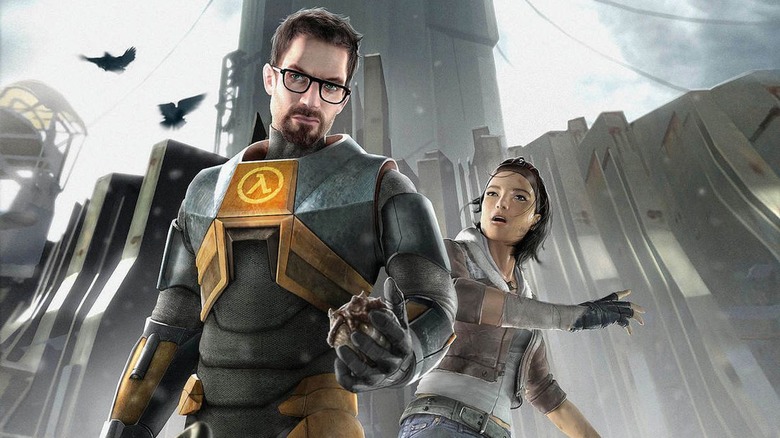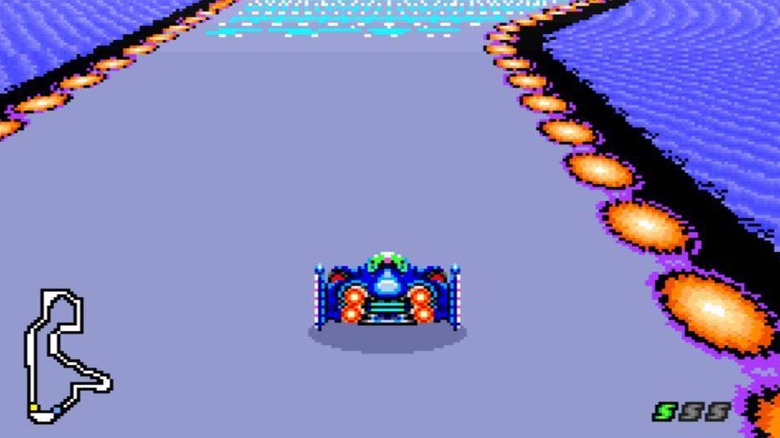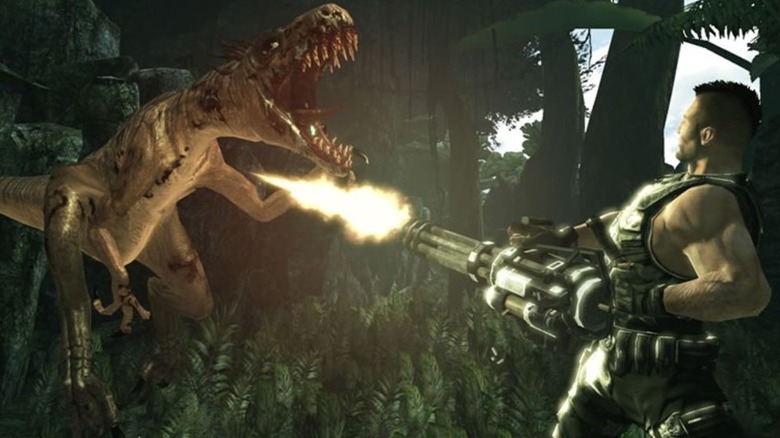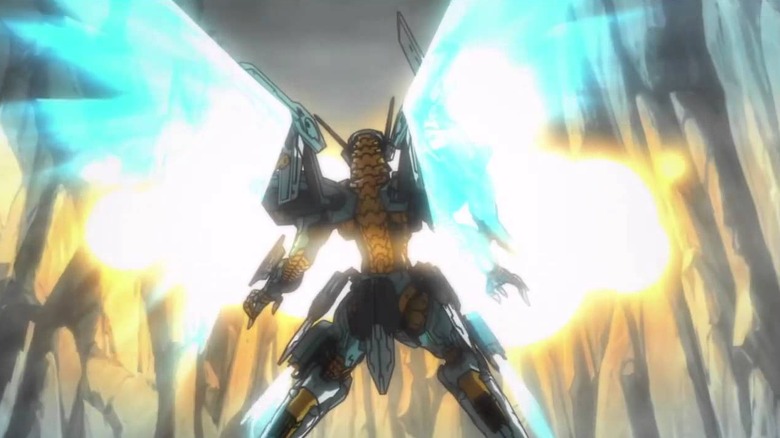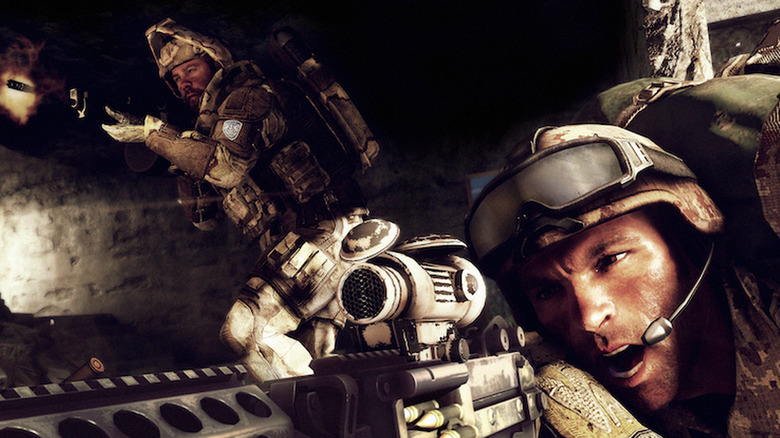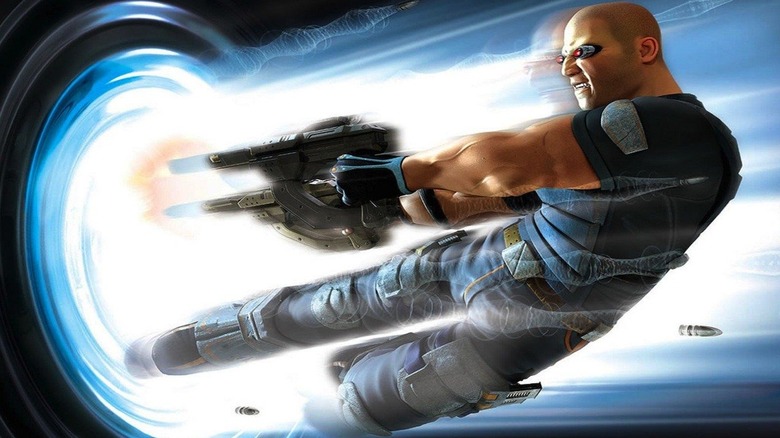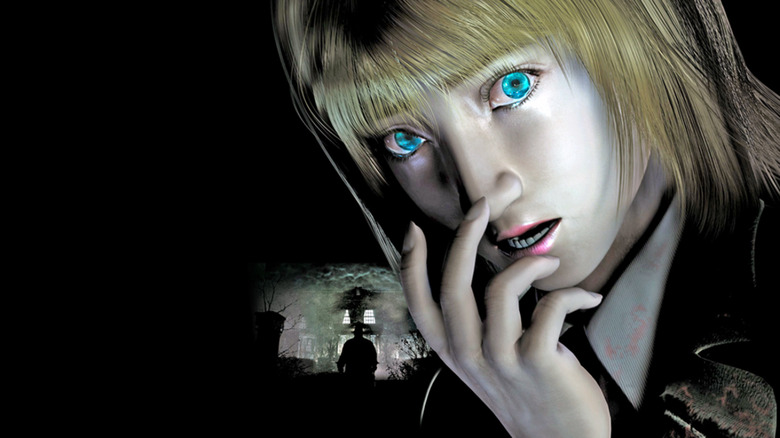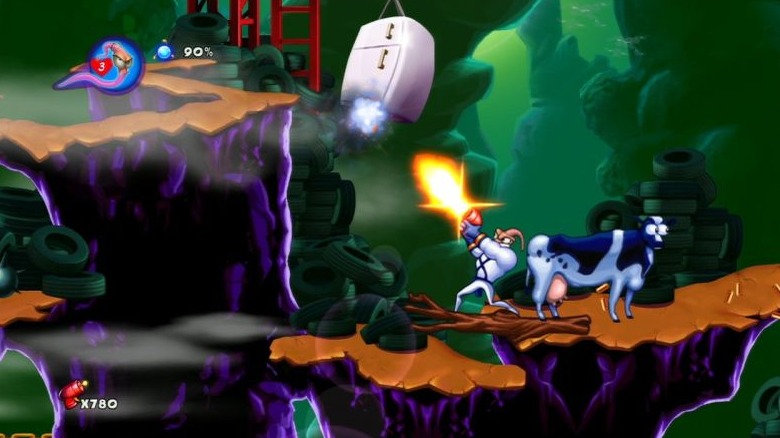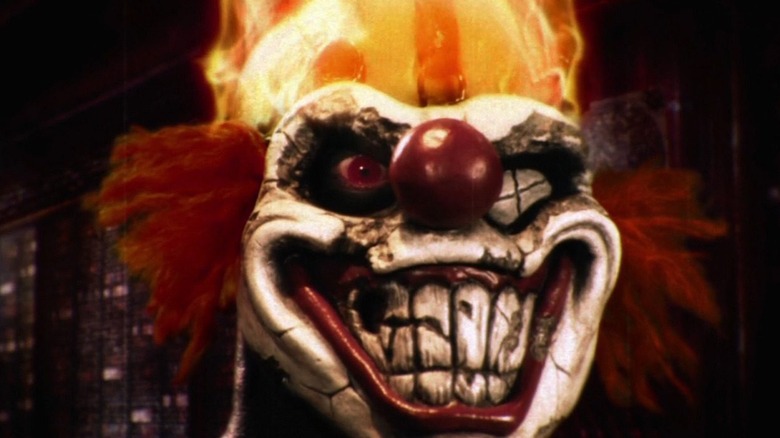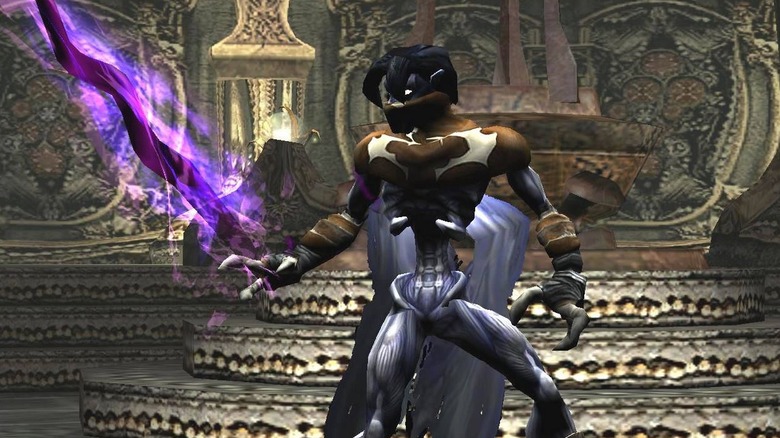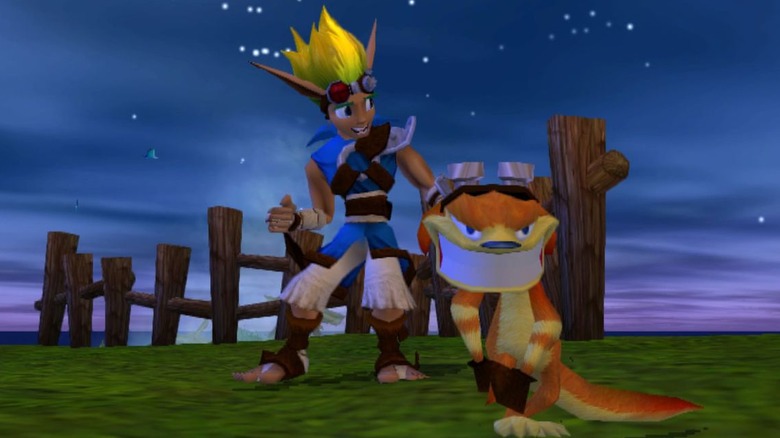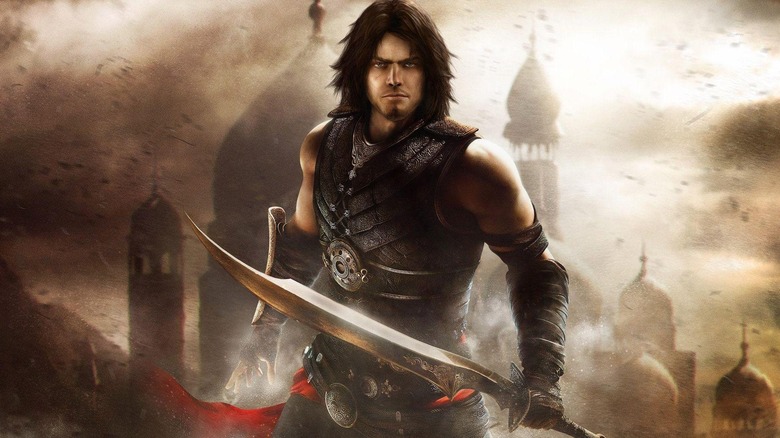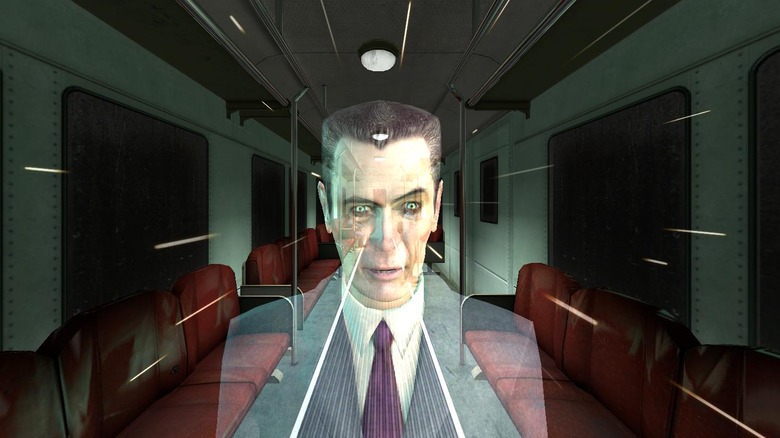Whatever Happened To These Dead Video Game Franchises?
There are no sure things in the gaming industry. In the words of the great American poet Axl Rose, "Nothing last forever, and we both know hearts can change."
With such huge franchises like Call of Duty and Grand Theft Auto still thriving, it's easy to forget about other major series that have stopped dead in their tracks. Many franchises that once felt like sure-fire hits have fizzled out and all but vanished. It's time to take a look at where they went and what exactly happened. Sometimes the answer really is as simple as poor sales or bad reviews, but it's rarely that cut and dried. The world of gaming is just like any other major business, with millions of moving parts that all have to be in sync for the magic to happen.
The following franchises were all big deals ... until they weren't. It's time to explore the ins and outs, the hows and whys, of gaming's biggest casualties.
F-Zero didn't evolve
Though Captain Falcon continues to be a mainstay in the roster of Nintendo's Super Smash Bros. series, the Captain's own series hasn't received a new entry in quite a while. Fans have been asking for a new F-Zero game, but a 2012 interview with Shigeru Miyamoto may have shed some light on why the series has been hibernating for so long.
Talking to French gaming website Game Kult, Miyamoto seemed surprised to learn that there was still a passionate following for the F-Zero series. He felt that the series suffered from a lack of innovation, having "evolved very little" since the first entry on the Super Nintendo. He assumed that "people had grown weary of it."
Since then, there has been an F-Zero minigame in the Wii U game Nintendo Land, and the original F-Zero was included with the SNES Classic. Despite this, there doesn't seem to be any interest from Nintendo in making a full-fledged F-Zero sequel any time soon.
Turok wasn't Disney (or good) enough
Gamers born in the '80s and '90s likely have a soft spot for the Turok series of first-person shooter games on the Nintendo 64. They combined everything that was cool at the time, including dinosaurs, big guns, and hyper violence. But 2002's Turok: Evolution would be the last game in the original series published by Acclaim. Sadly, Acclaim went bankrupt in 2004, and the game's rights were purchased by Disney Interactive (not the most likely studio to glom onto a gory franchise like this, but there you go).
Disney Interactive put Propaganda Studios in charge of a reboot to the series, simply entitled Turok. The resulting PlayStation 3 and Xbox 360 title received pretty mixed reviews, but Propaganda began work on a sequel. However, Disney went through a massive series of layoffs in 2009, with somewhere around 70 employees reportedly cut from Propaganda Studios alone. The remaining skeleton crew halted production on the new Turok 2 before it could even be officially announced, putting an end to the once-popular shooter franchise.
Zone of the Enders just didn't sell
While the first two games in this mech combat series, Zone of the Enders and Zone of the Enders: The 2nd Runner, both received positive reviews, the second game didn't sell nearly as well as the first installment. Series producer Hideo Kojima said 2nd Runner "did not achieve the expected numbers." However, Kojima remained optimistic on the series' chances at a third installment ... someday.
In 2011, the two original games were re-released in an HD collection. This was followed by an official announcement from Kojima in 2012 that a new entry to the series was finally on its way, codenamed "Enders Project." So what happened?
Simply put, the HD collection underperformed. The new versions of the games were developed by a different team, who did such a poor job that the framerate suffered. This left a bit of a blemish on the series' memory, which gave the developers of "Enders Project" cold feet. Said Kojima, "the producer and everything were cut, too," after the disappointment with the HD collection.
A VR remake of the second game was released in 2017, but the many setbacks and false starts since 2nd Runner's 2003 release seem to make it less and less likely that a true sequel will ever come to fruition.
Medal of Honor didn't go above and beyond
Once a powerhouse of an FPS multiplayer franchise, Medal of Honor hasn't seen a new entry since 2012's Warfighter. Trouble may have began for the series when the franchise's previous installment, 2010's Medal of Honor, courted controversy when developers originally included an option to play as Taliban soldiers, a move that saw more than 300 military stores banning Medal of Honor from sales. While EA eventually relented and scrubbed all mentions of the Taliban from the final game, the Medal of Honor brand was stained in the eyes of many.
Two years later, Warfighter was released to lackluster reviews and sales numbers that failed to meet EA's expectations. Peter Moore, the COO of EA, said the poor reviews were "lower than it deserved." Despite this, the publisher decided to shift their focus to their other franchises. Battlefield 3 had done much better with critics and players the year before and, while there have been two new Battlefield titles since then, EA made the call to take the Medal of Honor series "out of the rotation." It made better financial sense for EA to put their time and resources into a proven hit franchise.
It has yet to be seen whether or not the series will ever make a grand return.
Timesplitters was a hero shooter before it was popular
Developed by Free Radical Design, the Timesplitters franchise gained traction with players as a fun first-person shooter franchise that wasn't afraid to parody action movie and video game cliches while weaving its own wacky storyline. Sadly, there hasn't been a new entry in the series since Timesplitters 3: Future Perfect was released in 2005. It came close to happening, but a lack of interest from publishers seems to have permanently stalled the series.
Free Radical announced Timesplitters 4 in 2007. Then, a teaser trailer was released and was mysteriously taken down. Though a demo was made for Timesplitters 4, Free Radical couldn't find a publisher who would bite. Studio co-founder Karl Hilton says that there were a few factors involved, including the failure of their game Haze (named one of the worst games of all time by The Guardian). Hilton also explained that most publishers simply didn't know how to market the series, feeling that the series needed a central character as the selling point, rather than a diverse group. "They want a character that they can put on the front of the box," said Steve Ellis, formerly of Free Radical Design.
In 2018, the rights to the Timesplitters franchise was purchased by THQ Nordic, but there have yet to be any formal announcements of any new entries in the series.
Clock Tower changed what made it tick
Beginning in 1995 on the Super Famicom, the original Clock Tower was an introduction to the survival horror genre for many gamers. Series creator Hifumi Kono's decision to craft a horror game where the protagonist has no weapons added a layer of desperation that was seen as a true innovation.
Kono's team, Human Entertainment, produced two sequels for the PlayStation. While the first sequel (also, confusingly, titled Clock Tower) was a success, Clock Tower 2: The Struggle Within was criticized for straying too far from the mechanics of the previous game. Sadly, Human Entertainment closed up shop not too long after the release of Clock Tower 2, leaving Capcom to pick up the rights to the series.
Working with Sunsoft, Capcom radically changed the aesthetic of the Clock Tower franchise. The resulting game, Clock Tower 3, felt and played very differently from previous entries and sold barely over half the estimated number of units, killing any interest in producing another sequel.
Earthworm Jim was defeated by polygons
Ah, Earthworm Jim. Only in the '90s would a character this ridiculous receive not only a successful video game, but a cartoon series and action figures, too. The first two main installments were big hits, but the series' first foray into 3D graphics was an unmitigated disaster.
The first entry in the series not developed by creator Shiny Entertainment, the aptly-titled Earthworm Jim 3D attempted to bring the signature humor and ludicrous mechanics to the Nintendo 64 and Windows. Released in 1999, 3D turned out to be a buggy mess. Game Complaint Department felt there was an "absolute lack of imagination" in terms of story and gameplay, with weapons that barely figured into the experience beyond a single use. A Game Boy Color spin-off released the same year likewise garnered average reviews.
In the years since, another Earthworm Jim game was briefly in development for the Xbox and PlayStation 2, but it was canceled during preproduction. Aside from an HD remake of the original game released in 2010, there hasn't been any real forward momentum for the franchise since the '90s.
Sadly, the '90s may be where Jim belongs.
Twisted Metal burned out
The most recent installment in the Twisted Metal series was 2012's reboot. Since then, fans of over-the-top vehicular carnage have been wondering if they'll ever again see Sweet Tooth and the gang tear the asphalt a new one. Unfortunately, news on that front has been scarce. In the years since the last new game, a film adaptation was announced and then dropped, with Sony Pictures deciding the series didn't have the necessary fanbase to justify spending millions of dollars on a movie.
In early 2018, series creator David Jaffe released a video titled "The State of Twisted Metal." In this video, Jaffe attempted to give Metalheads (that's what they call themselves, right?) an update on where the franchise is going, if anywhere at all. While he explained that he no longer owns the rights to the franchise, he did assure fans that Sony is keeping him abreast of any developments on a new Twisted Metal title. Despite their reissue of 2001's Twisted Metal Black on the PS4, Jaffe felt that Sony wasn't particularly interested in developing a new game. It seems as though Calypso may have organized his last race.
Legacy of Kain couldn't escape development hell
The Legacy of Kain series told a winding tale involving vampires and time travel. It's a shame, then, that the franchise's mythology hasn't seen a proper conclusion. The story behind why is almost as complicated as the plot of the series.
In 2009, Square Enix hired UK developers Climax Studios to begin work on a game that would eventually be titled Legacy of Kain: Black Sun. While Climax were excited to work on the series, Square Enix was extremely hands-on during the whole process, giving Climax strict guidelines to adhere to. First, they wanted the game to feature a new lead character, making the plot of the new game only tangentially related to the previous entries. They wanted the story to be dark and gritty, akin to an HBO series. Also, they insisted that the gameplay be, as one developer put it, "insultingly simple." The game was in development for three years, but due to a series of underwhelming tests, lack of a cohesive marketing plan, and financial difficulties at Square Enix, Black Sun was officially canceled in 2012.
A multiplayer game set in the Legacy of Kain universe, Nosgoth, was likewise canceled in 2016. Though Nosgoth spent more than a full calendar year as an Early Access title on Steam, Square Enix decided to pull the plug based on low interest from players. Since then, there hasn't been any sign of life from the undead franchise.
Jak and Daxter were eaten by zombies
The story of Naughty Dog's Jak and Daxter series is an odd one. The first installment was a lighthearted platformer with adventure game elements, while its sequels went in a darker direction, emphasizing more gunplay. In addition to the core series, the franchise saw a racing spin-off, as well as two games on the PlayStation Portable. With the most recent new release in the series being the PSP's Jak and Daxter: The Lost Frontier in 2009, it seems like the series may be long over.
After the release of Uncharted 2, Naughty Dog split into two teams. One team would develop content using the Uncharted game engine, while the second group would focus on other projects. The first assignment was a new Jak and Daxter game, which started to take the form of a reboot. Though they came up with some redesigns that were considered "pretty damn good-looking," the team found their hearts just weren't in this project. They decided to focus instead on a pitch for a new zombie game, which eventually became critical darling The Last of Us.
Aside from the release of an HD remaster of the original trilogy in 2012, there hasn't been a peep out of the franchise. When asked about the possibility of a new Jak game, Naughty Dog founder Evan Wells said, "I wouldn't think that's going to happen." These sentiments were echoed in 2016 by Naughty Dog's Director of Communications, Arne Meyer, who said, "There's nothing in the works right now."
Prince of Persia has been lost to the sands
Beginning in 1989, the Prince of Persia series was extremely innovative, with rotoscoped animation and mechanics that combined puzzle-solving with adventure game elements. The original trilogy was successful, but 2003's reboot, Prince of Persia: The Sands of Time, made the Prince a gaming icon for a whole new generation. The Sands of Time was critically acclaimed, leading to two sequels and a few portable spin-offs. So what happened?
The most recent release in the franchise was an endless runner game for iOS that had the barest resemblance to the series and received horrific reviews, with one critic calling it "a game that doesn't want to be played." Before that, the last true entry in the series was 2010's The Forgotten Sands, set between The Sands of Time and its sequel, Warrior Within. The Forgotten Sands received decent reviews, but it also had the unfortunate fate of being released the same year as the film adaptation of The Sands of Time. The film received so-so reviews and was accused by many of whitewashing the Prince with its casting of Jake Gyllenhaal.
This backlash and mixed reception may have had the effect of diluting the brand in the eyes of franchise owners Ubisoft. In a 2013 interview, Yannis Mallat, CEO of Ubisoft Montreal, stated that the series was "paused" while the company focused on the series' brand management.
Maybe someday, the Dagger of Time can be used to rescue the series from past missteps.
Half-Life is out of jokes to make about Half-Life
Ah, yes. The Half-Life series might be the most famous example of a stalled franchise in the history of video games. The most frustrating thing about Half-Life's dormancy is the lack of concrete reasons why.
In 2007, Half-Life 2: Episode 2 was released and ended on a cliffhanger. Rather than do a full-fledged third game, developer Valve felt it could do fans one better and release the next parts of the story in installments, reducing the wait time for story resolution. (HA!) Valve's Gabe Newell said the new serial releases were essentially Half-Life 3.
Half-Life 2: Episode 3 was certainly in development at one point, as was a fourth episode, entitled Return to Ravenholm. However, Valve pulled the plug and, again, there hasn't been a public statement as to why. However, it seemed that Valve had changed its mind about the serialized concept.
Several other iterations of Half-Life 3 were apparently developed and discarded, including a real-time strategy version. In 2011, Valve higher-ups intimated that they were moving away from developing single-player games, casting further doubt on Half-Life's future.
The real deathblow seems to have come when Half-Life writer/designer Marc Laidlaw left Valve in 2017. Laidlaw subsequently posted a short story to his blog in 2017 that seemed to tell the entire intended plot of Half-Life 3. That doesn't inspire much confidence in ever seeing Gordon Freeman in action again.

